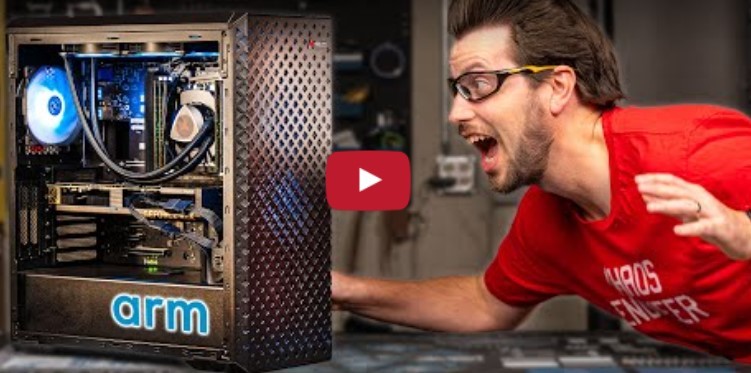
10 Little-Known Computer Science Changes
The field of computer science undergoes continuous evolution, with some of the most thrilling changes occurring inconspicuously. Although the media generally focuses on the latest electronics or social media trends, many important developments emerge from the public eye.
Although these advancements may not receive much public attention, they significantly influence the future of technology.
400 crores business in 7 days, ‘Astra 2’ has created a new record
This list will examine 10 obscure changes in computer science. These improvements encompass various disciplines, including state-of-the-art computer processors and cutting-edge wireless technology.
Each individual can revolutionize our lives, enhancing the effectiveness of daily activities and unveiling fresh opportunities. If you have an interest in technology or are simply inquisitive about upcoming advancements, these ten items will provide you with a detailed insight into some of the lesser-known yet captivating advancements in computer science. Let us investigate the matter and see what is occurring behind the scenes.
10 Little-Known Computer Science Changes
Historically, ARM processors were predominantly utilized in mobile devices owing to their notable energy efficiency and reliable performance. However, more recently, they have begun to emerge in desktop personal computers. An exemplary instance is Jeff Geerling’s endeavor, whereby he constructed a desktop PC utilizing ARM architecture that boasts exceptional speed. Geerling’s comprehensive blog post outlines his utilization of diverse components to construct a robust and efficient ARM desktop system, showcasing the capabilities of ARM architecture in a desktop environment.
Ronaldo set the record for subscribers and views on YouTube
ARM microprocessors exhibit notable distinctions when compared to Intel and AMD x86 CPUs. ARM employs a RISC architecture, which streamlines the instructions executed by the processor. ARM processors are popular in mobile devices due to their ability to achieve greater efficiency and lower battery consumption. On the other hand, x86 processors have a complex instruction set computing (CISC) architecture, which enables them to carry out a wider range of intricate commands. However, this typically results in higher power consumption.
Linux on Desktop PCs
Linux has been steadily advancing as a desktop operating system, recently achieving a noteworthy milestone. Tom’s Hardware research indicates that Linux now holds a 3% market share in the desktop PC industry. The rise of this technology is fueled by the rising awareness and adoption among consumers who highly appreciate its open-source nature and robust security features. Linux is highly regarded for its strong resilience and exceptional security features. Linux is more resistant to viruses and malware than other operating systems, making it a very secure option for many users.
Moreover, the fact that it is open-source allows anyone to scrutinize code, enhancing transparency and fostering confidence. This feature is especially attractive to customers concerned about maintaining their privacy and safeguarding their data. The growing interoperability of Linux with widely-used applications and hardware also fuels its adoption. Playing video games on the Linux operating system has become more feasible, thanks to sites like Steam that now provide improved assistance.
The Proliferation of Edge AI
Edge AI significantly influences the field by enabling on-device data processing and AI operations, eliminating the need for remote data centers. This modification entails faster response times, crucial for driverless vehicles, intelligent cameras, and Internet of Things (IoT) devices.
By performing data processing locally, these devices can make immediate judgments without requiring continuous internet connectivity. In addition to enhancing speed, Edge AI enhances privacy and security by storing data on the device rather than transmitting it to the cloud. This strategy also reduces bandwidth use. As more firms allocate resources to Edge AI, our daily lives are being influenced by the integration of smarter and more efficient devices, which are transforming our interactions with technology.
Wi-Fi 6 and Wi-Fi 6E
Wi-Fi 6 and Wi-Fi 6E are introducing substantial enhancements to our wireless networks. Wi-Fi 6 provides enhanced speed and improved efficiency, making it particularly important for households with numerous smart devices. It efficiently manages many connections, minimizing the latency that may occur with older Wi-Fi versions.
Wi-Fi 6E enhances these advantages by utilizing the 6 GHz frequency spectrum, diminishing interference and congestion in densely populated regions. This implies enhanced data transfer speeds and superior functionality, particularly in settings with many interconnected devices. Wi-Fi 6 and 6E are crucial for contemporary connection due to their ability to accommodate the growing need for high-speed internet in networks.
Sustainable and Green Technologies in Computing
The technology sector is progressively adopting sustainable technologies to mitigate environmental consequences and decrease expenses. Companies are currently employing energy-efficient processors and environmentally friendly data centers.
These technological improvements reduce carbon footprints and operational expenses, resulting in a mutually beneficial outcome for enterprises and the environment. Data centers are incorporating renewable energy sources such as solar and wind to enhance their sustainability.
Advanced cooling technologies, such as liquid and enhanced airflow designs, help decrease energy use. This enhances the efficiency and reduces the environmental impact of data centers. Hardware design also includes sustainable techniques. Businesses are employing sustainable practices by utilizing recyclable materials and prioritizing the reduction of electronic waste through improved product lifecycle management. These endeavors contribute to the sustainability and environmental friendliness of the computing industry, demonstrating that technological advancements may be made while prioritizing the earth’s well-being.



